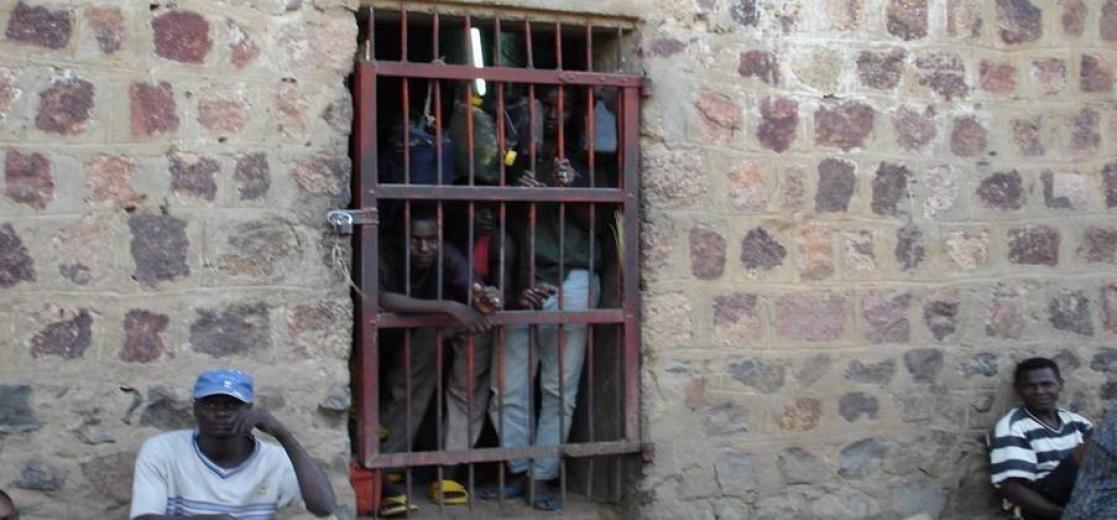COVID-19 exacerbated the risk of ill-treatment and torture worldwide

The COVID-19 pandemic led to an escalation of torture and ill-treatment worldwide. People deprived of liberty, already subject to the risk of cruel, inhuman and degrading treatment, faced a new threat that made them particularly vulnerable especially when confined in closed spaces, where social distancing is practically impossible. Protective measures, including lockdowns and curfews, often resulted in an excessive use of force by law enforcement officials, and the corona crisis highlighted institutional and procedural failures that have exacerbated the risk of torture and ill-treatment for countless children, women and men in all regions of the world.
“The restrictions and lockdowns have led to higher levels of human rights violations and abuses in both the public and domestic spheres, including increased violence, arbitrary arrests and detentions, physical attacks and psychological trauma for many human beings”, reads the Statement issued by the EU High Representative/Vice-President Josep Borrell to mark this day. “Respect for human rights and human dignity must continue to shape our response to the ongoing global pandemic. Torture and other ill-treatment in places of detention continue, despite the efforts from many governments to reduce the number of detainees in times of health crisis”.
Persons deprived of liberty are especially in danger of getting infected by the lethal virus due to their vulnerable situation. As of 20 May 2021, more than 548,489 prisoners had contracted COVID-19 in 122 countries, and at least 3,968 had died of this new virus throughout prisons in 47 countries, according to the independent information platform Prison Insider. Unfortunately, these numbers are not final and are far from reflecting today´s reality.

Detention conditions in Mali. Source: Lionel Grassy, FIACAT
From horror to healing: 40 years of the UN Voluntary Fund for Victims of Torture
Established in 1981 with a mandate to support torture victims and their families, the UN Voluntary Fund for Victims of Torture marks its 40th anniversary this year.
The Fund awards hundreds of grants to civil society organizations worldwide to deliver medical, psychological, legal, social and other assistance. The voluntary funding received mostly from member States contributes to the rehabilitation, reparation, empowerment and access to remedies of nearly 50,000 torture survivors each year. Different civil society organizations, ranging from survivor-led initiatives to rehabilitation centres, deliver services to torture survivors in situations of particular vulnerably, including children, youth, persons deprived of liberty, persons with disabilities, indigenous peoples, migrants including asylum seekers, refugees, internally displaced persons and LGBTI persons, amongst others.
EU VS torture: improving detention conditions, fighting impunity, supporting human right defenders…
The EU has devoted more than €100 million over the last decade to anti-torture efforts, an issue that remains a priority of the EU Action Plan on Human Rights and Democracy 2020-2024. The Union tirelessly works to combat torture worldwide, in all its forms, contexts and settings and improve detention conditions and treatment of persons deprived of their liberty. Accountability for perpetrators, effective justice systems and redress for victims are also crucial aspects of the European anti-torture policy.
Engaging at bilateral, regional and multilateral level, in particular with the UN, the Council of Europe and the International Criminal Court, and through its support to civil society organisations and human rights defenders, the EU will not shy away from condemning acts of torture and other ill-treatment worldwide, and supporting independent investigations of serious human rights violations and abuses wherever they occur.
The EU Global Human Rights Sanctions Regime signals the EU’s determination to stand up for human rights and to take decisive, tangible action against those responsible for serious violations and abuses, such as torture and other ill -treatment.
A good example of joint action are the Principles on Effective Interviewing for Investigations and Information Gathering, recently launched with the support of the UN, States, civil society and academia. They provide guidance on obtaining accurate and reliable information in full respect of human rights and dignity of all, including through the implementation of legal and procedural safeguards in the first hours of police custody.
In cooperation with Argentina and Mongolia, the EU will also further promote the Alliance for Torture-Free Trade, encouraging all States to step up collective action in order to regulate trade in goods used for the death penalty, torture and other ill-treatment.





